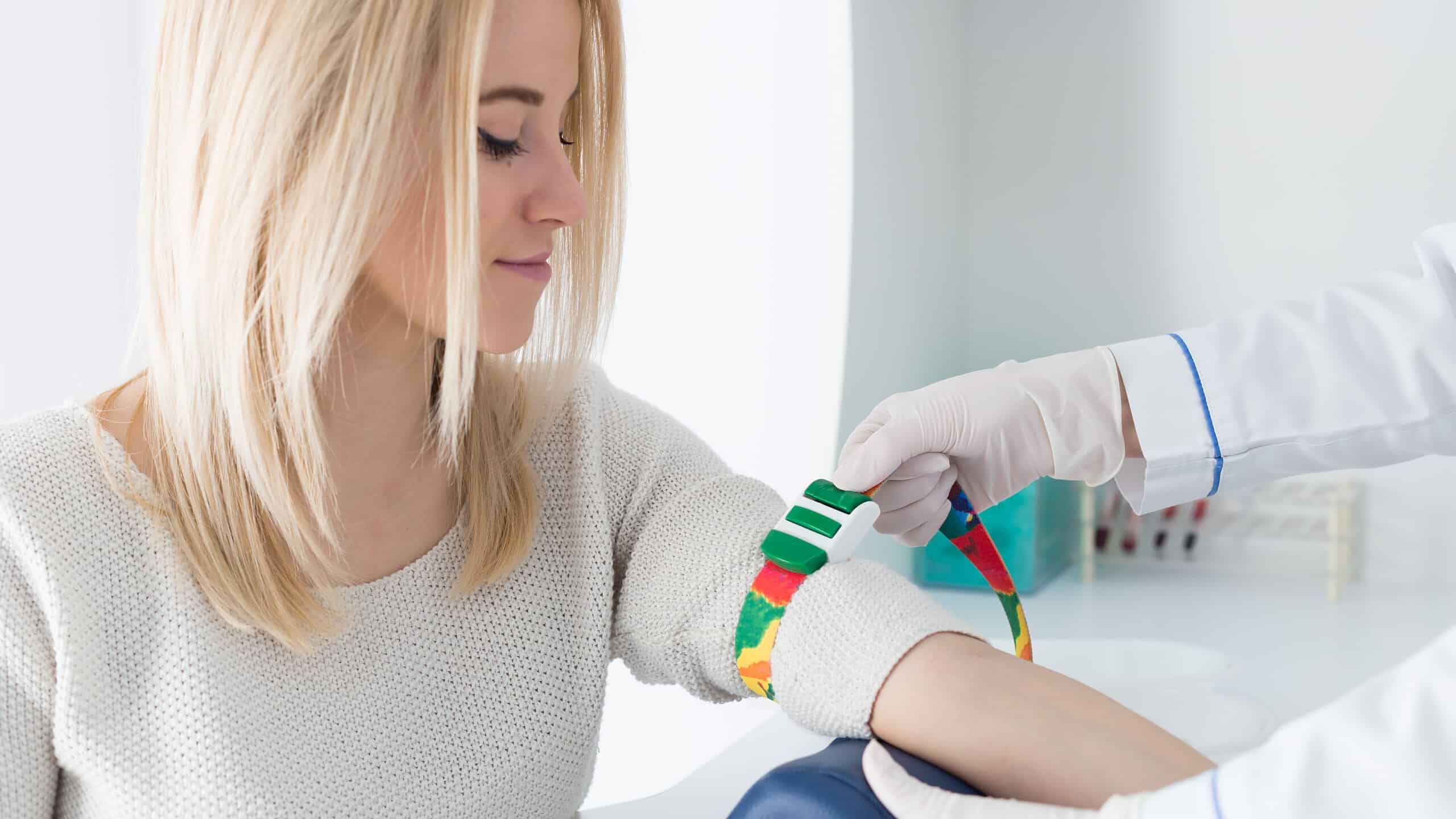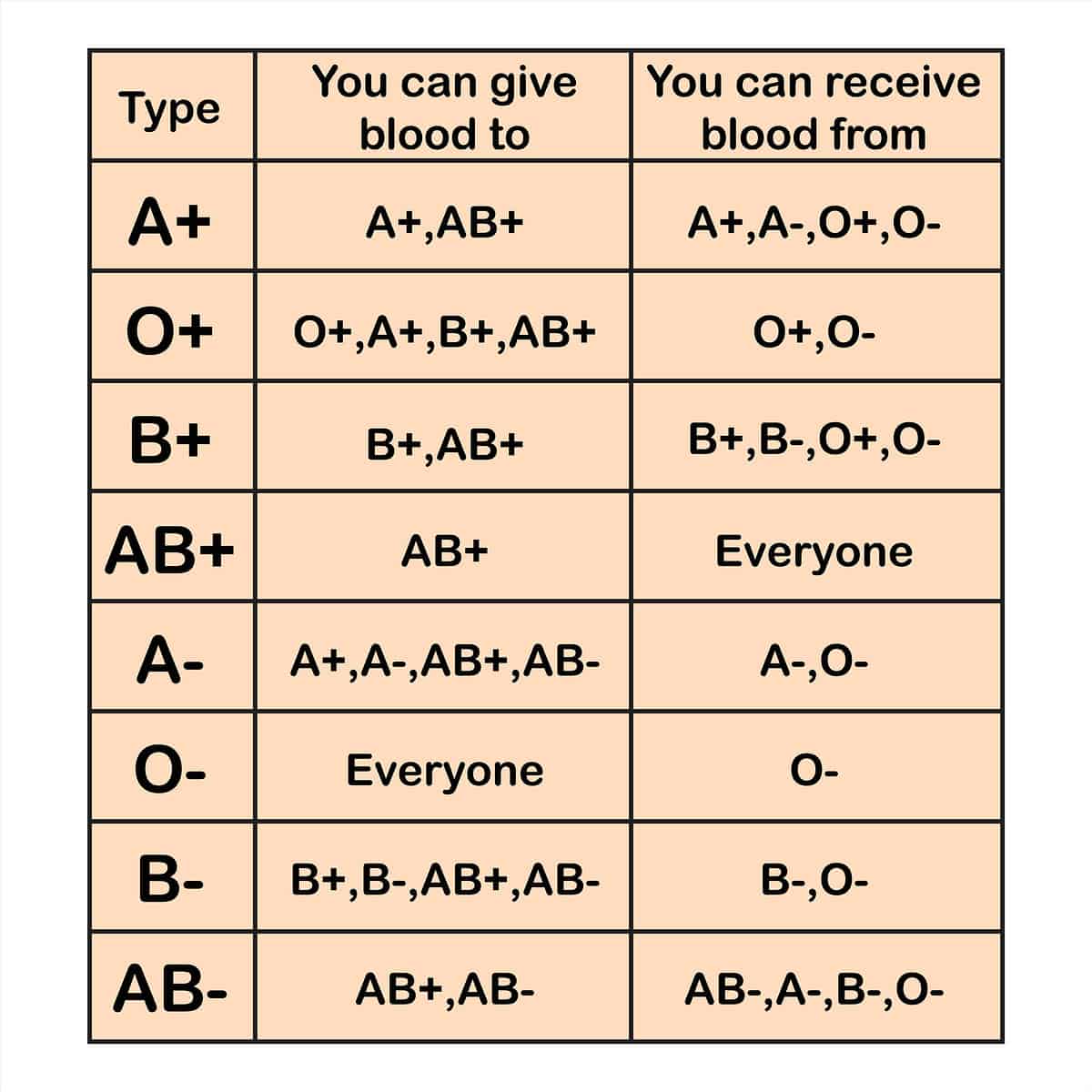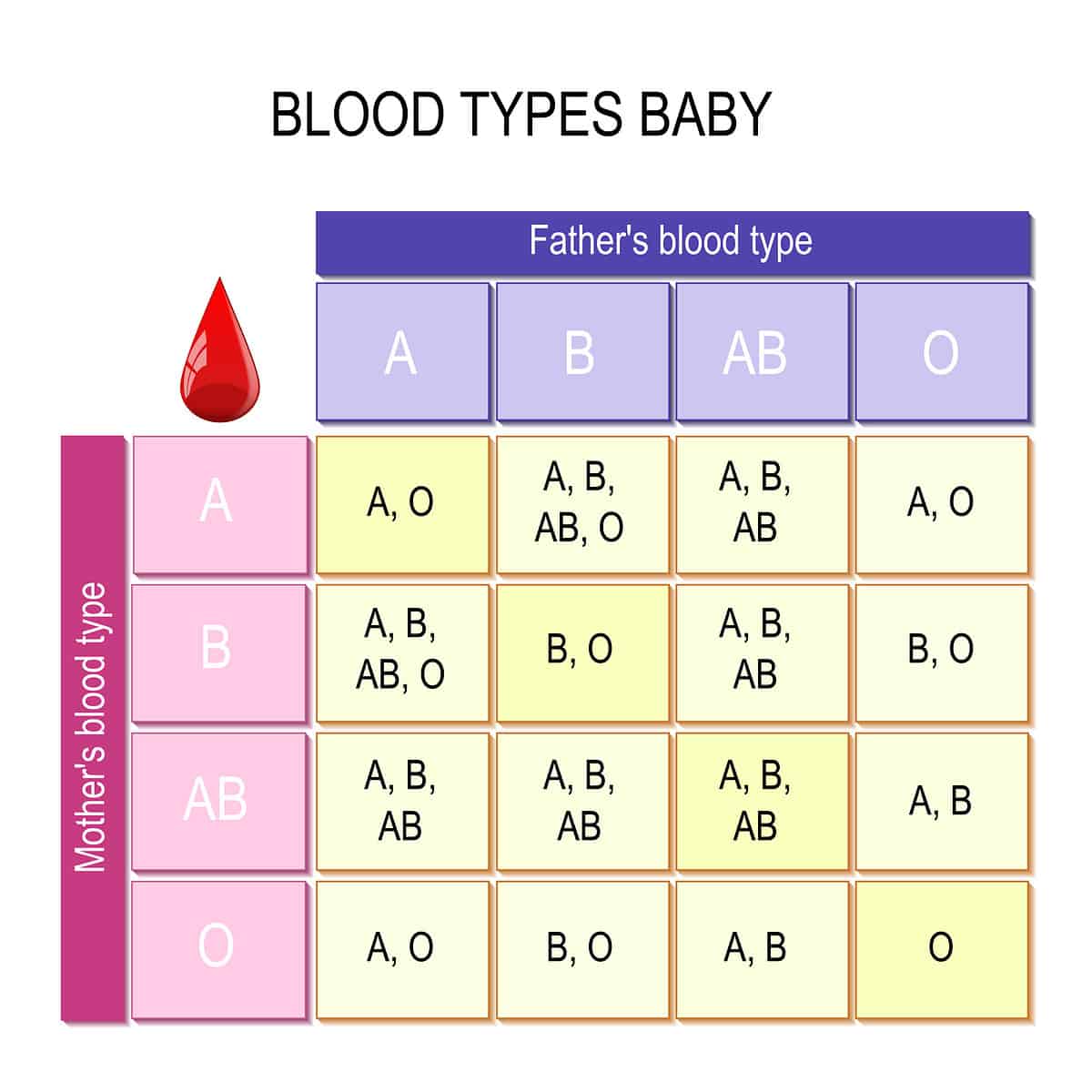

Blood Type Chart — What Are the Different Blood Types?
If you know anything about human anatomy, you know blood is important! Blood makes up about 7% of our body weight. It also transports oxygen to our lungs and keeps our bodies in balance. Did you know the type of blood you have can impact your overall health? A blood type chart is a simple way to understand the different types of blood and how your blood type affects you.

©zizou7/Shutterstock.com
What Are the Different Blood Types?
There are four different groups of blood types: A, B, AB, and O. The presence or absence of two different antigens and antibodies is what determines each type. Within each group, each blood type also has a specific Rh factor, short for Rhesus factor. Your blood type can either be Rh negative or Rh positive, such as A- or O-. The positive and negative parts determine whether or not there is a specific protein in your blood.
What Does Blood Type Mean?
Despite the importance of distinguishing between blood types, they weren’t discovered until 1901 by Karl Landsteiner, an Austrian scientist. Since blood type matching is necessary for blood transfusions, prior to the discovery of blood types, doctors didn’t know why transfusions saved some lives while causing others to die.
The different blood types we’re now aware of are decided based on the antigens present in the blood. Antigens are substances that can trigger an immune response in your body if they detect something foreign or harmful. The antigens present in different blood types are the reason not all blood types are interchangeable, and you can only receive blood that’s a match for your specific type.
What Are the 8 Different Blood Types?
Although there are four different groups of blood types, there are 8 total blood types since each category has an Rh negative and positive version. The 8 different blood types are:
- A+
- A-
- B+
- B-
- AB+
- AB-
- O+
- O-
Interestingly enough, which blood type you need in the event of a transfusion isn’t as simple as receiving the same blood type as you. O- for example, is the universal donor, meaning a person with any blood type can receive O- blood. However, someone with O- blood can only receive O- blood, which is only 7% of the population. Here are some facts about each blood type:
Type A+
Around 32% of the population have A+ blood. While A- is pretty rare, A+ is the second most common blood type.
Type A-
Only 6% of the population has A- blood. A person with type A- can donate to all A and AB blood types.
Type B+
Both B+ and B- are considered rare blood types. About 11% of the population has type B+. This blood type can be given to those who have B+ or AB+.
Type B-
The B- blood type is rarer than B+, with 2% of the population having type B-. B- is the second rarest blood type.
Type AB+
About 4% of the population has AB+ blood. AB+ is considered the universal recipient because someone with AB+ can receive any blood type.
Type AB-
Type AB- is incredibly rare since only 1% of the population has AB- blood. If you have AB- blood, you can receive any negative blood type.
Type O+
O+ is a very common blood type, with about 39% of the blood population having O+ blood. Any person with a positive blood type can receive O+ blood.
Type O-
7% of the population has O- blood. O- is considered the universal donor because anyone can receive O- blood, regardless of blood type.
What Is the Rarest Blood Type?
7% of the population may sound low, but O- isn’t the rarest blood type. In fact, AB- is the rarest blood type, with only 1% of the population having AB- blood. Someone with AB- blood can only give blood to those with blood in the AB category, either negative or positive.
What Is the Most Common Blood Type?
The most common blood type is O+, which represents 39% of the population. A+ comes in as the second most common at 34% of the population. Those with O+ blood can only receive O+ or O- blood.

©Designua/Shutterstock.com
How Blood Type Is Determined
Just like your hair color or eye color, blood type is inherited. The combination of your parent’s blood types together is what determines what possible blood type you will have. For example, if both parents have O-type blood, their child will have O-type blood as well. But if one parent has O type and the other parent has A, the child could have either O or A type of blood.
What Do Blood Types Mean for Your Health?
Many people don’t actually know their blood type. If you do know, it may be because you’ve donated blood before or because you found out during your pregnancy. When you have a baby, your Rh factor must match your baby's, because it can impact how your immune system reacts to the baby during a future pregnancy.
Aside from pregnancy, your blood type can impact your health in other ways since your blood type is connected to your heart health. There is a gene present in A, B, and AB blood types called the ABO gene. The ABO gene can cause you to have a higher risk of heart disease and other heart-related complications. This is especially true if you live in or spend a significant amount of time in high-polluted areas.
Using Your Blood Type to Keep Yourself Healthy
Knowing your blood type can help you understand how it may impact your health. If you ever need a blood transfusion, it’s also helpful to know your blood type since this impacts the type of blood you can receive.
Having the ABO gene doesn’t necessarily mean you’ll end up with heart disease, but knowing and understanding the risk factors is important. When it comes to preventing heart disease, you can reduce your risk by living a healthy lifestyle to decrease your risk. This might include regular exercise, maintaining a heart-healthy diet, and avoiding activities like smoking.